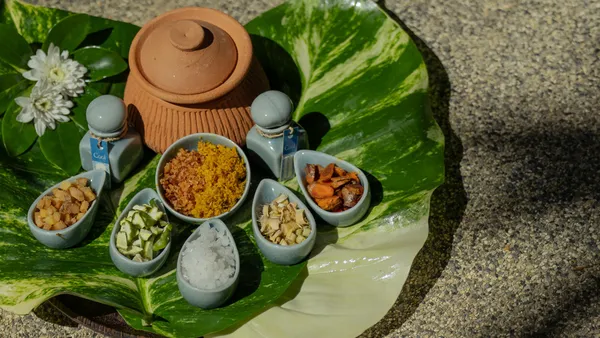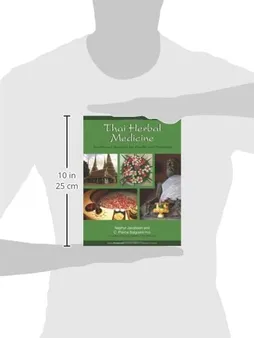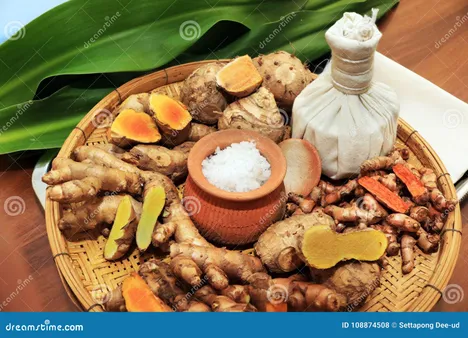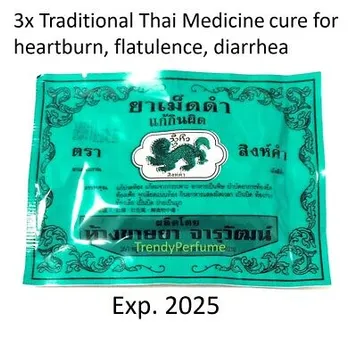Table of Contents
Discover the ancient healing wisdom of Thai food at Tauhuichiban. For centuries, Thai people have used traditional recipes and ingredients to promote health and well-being. In this article, we will explore The role of Thai food in traditional medicine, examining the healing power of Thai herbs, spices, and traditional recipes. We will also discuss the potential of Thai food as a preventative measure and its future in modern healthcare.

The Role of Thai Food in Traditional Medicine: A Culinary Journey to Health and Well-being
I. Thai Herbs and Spices: Nature's Remedies
Thai cuisine is renowned not only for its delicious flavors but also for its medicinal properties. For centuries, Thai people have used traditional recipes and ingredients to promote health and well-being. This article explores the role of Thai herbs and spices in traditional medicine, examining the healing power of Thai herbs, spices, and traditional recipes. We will also discuss the potential of Thai food as a preventative measure and its future in modern healthcare.
Thai herbs and spices are a vital part of traditional Thai medicine. They are used to treat a wide range of ailments, from the common cold to more serious conditions like cancer. Many Thai herbs and spices have been shown to have medicinal properties, including antibacterial, antiviral, and anti-inflammatory effects. For example, turmeric is a powerful anti-inflammatory that has been shown to be effective in treating conditions like arthritis and Crohn's disease. Ginger is another common Thai herb that has been shown to have anti-nausea and anti-inflammatory properties.
Herb or Spice | Medicinal Properties |
|---|---|
Turmeric | Anti-inflammatory, antibacterial, antiviral |
Ginger | Anti-nausea, anti-inflammatory |
Garlic | Antibacterial, antiviral, antifungal |
Lemongrass | Antibacterial, antifungal, anti-inflammatory |
Holy basil | Antioxidant, anti-inflammatory, antibacterial |
In addition to their medicinal properties, Thai herbs and spices are also a good source of vitamins, minerals, and antioxidants. These nutrients are essential for maintaining good health and can help to protect against chronic diseases like heart disease and cancer. For example, holy basil is a good source of antioxidants, which can help to protect cells from damage. Lemongrass is a good source of vitamin C, which is essential for immune function.
Thai traditional recipes often combine several herbs and spices to create a synergistic effect. For example, the popular Thai soup tom yum is made with a combination of lemongrass, galangal, kaffir lime leaves, and chili peppers. This combination of herbs and spices has been shown to have anti-inflammatory, antibacterial, and antiviral properties. Another popular Thai dish, pad thai, is made with a combination of tamarind, fish sauce, and peanuts. This combination of ingredients has been shown to have antioxidant and anti-inflammatory properties.
- The Health Benefits of Thai Herbs and Spices
- The Role of Thai Food in Traditional Medicine
- The Future of Thai Food in Traditional Medicine
Thai food is a delicious and healthy way to promote your health and well-being. By incorporating Thai herbs and spices into your diet, you can take advantage of their many medicinal properties. If you are interested in learning more about the role of Thai food in traditional medicine, there are many resources available online and in libraries.

Thai Herbs and Spices: Nature's Remedies
II. Traditional Thai Recipes for Healing
Thai food is renowned not only for its delicious flavors but also for its medicinal properties. For centuries, Thai people have used traditional recipes and ingredients to promote health and well-being. This article explores the role of Thai food in traditional medicine, examining the healing power of Thai herbs, spices, and traditional recipes. We will also discuss the potential of Thai food as a preventative measure and its future in modern healthcare.
The use of food as medicine is a central part of traditional Thai culture. Thai people believe that the balance of the body's elements (known as doshas) is essential for good health, and that food can be used to correct imbalances and promote healing. Thai herbs and spices are thought to have specific medicinal properties, and are often used in traditional recipes to treat a variety of ailments.
Some of the most common Thai herbs and spices used for medicinal purposes include turmeric, galangal, lemongrass, and kaffir lime leaves. Turmeric is a powerful anti-inflammatory and antioxidant, and is often used to treat digestive problems, skin conditions, and wounds. Galangal is another anti-inflammatory, and is also thought to have antibacterial and antifungal properties. Lemongrass is a refreshing herb that is often used to treat fever, headache, and nausea. Kaffir lime leaves are a good source of vitamin C and antioxidants, and are often used to promote digestion and relieve stress.
Here are some specific examples of how Thai food can be used to heal:
Condition | Thai Food Remedy |
|---|---|
Digestive problems | Tom yum soup, green curry, papaya salad |
Skin conditions | Turmeric paste, neem oil |
Wounds | Honey, coconut oil |
Fever | Lemongrass tea, ginger tea |
Headache | Lemongrass tea, peppermint tea |
Nausea | Lemongrass tea, ginger tea |
Stress | Kaffir lime tea, jasmine tea |
In addition to its use in traditional medicine, Thai food is also thought to have a number of preventative health benefits. For example, the antioxidants in Thai herbs and spices may help to protect against cancer and heart disease. The fiber in Thai vegetables and fruits may help to lower cholesterol levels and improve digestion. And the probiotics in Thai fermented foods may help to boost the immune system and improve gut health.
As Western medicine continues to explore the role of nutrition in health and disease, Thai food is gaining recognition as a healthy and healing cuisine. Thai chefs are now experimenting with new ways to incorporate traditional Thai ingredients into modern dishes, making it easier than ever to enjoy the health benefits of Thai food.

Traditional Thai Recipes for Healing
III. The Role of Thai Food in Traditional Medicine
Thai food is renowned not only for its delicious flavors but also for its medicinal properties. For centuries, Thai people have used traditional recipes and ingredients to promote health and well-being. This article explores the role of Thai food in traditional medicine, examining the healing power of Thai herbs, spices, and traditional recipes. We will also discuss the potential of Thai food as a preventative measure and its future in modern healthcare.
Essential Thai Herbs and Spices in Traditional Medicine
Herb or Spice | Health Benefits |
|---|---|
Holy basil | Boosts immunity, reduces inflammation |
Turmeric | Anti-inflammatory, antioxidant |
Lemongrass | Relieves stress, improves digestion |
Galangal | Antibacterial, anti-inflammatory |
Kaffir lime | Rich in vitamin C, promotes skin health |
Cilantro (coriander) | Detoxifying properties, helps lower cholesterol |
Traditional Thai Recipes for Health and Well-being
Dish | Health Benefits |
|---|---|
Tom yum soup | Anti-inflammatory, boosts immunity |
Green curry | Rich in antioxidants, helps protect against chronic diseases |
Pad Thai | Provides energy and nutrients, helps regulate blood sugar levels |
Mango sticky rice | Provides carbohydrates and fiber, helps with digestion |
Coconut milk | Rich in healthy fats, helps lower cholesterol |
Jasmine tea | High in antioxidants, promotes relaxation |

The Role of Thai Food in Traditional Medicine
IV. Modern Applications of Thai Culinary Medicine
The Role of Thai Food in Modern Healthcare
Thai culinary medicine is gaining recognition for its potential to promote health and well-being. Traditional Thai recipes and ingredients have been used for centuries to treat a variety of ailments, and modern research is now confirming the medicinal properties of many of these foods.For example, turmeric, a common ingredient in Thai curries, has been shown to have anti-inflammatory and antioxidant properties. Ginger, another popular Thai ingredient, has been shown to aid digestion and reduce nausea. And lemongrass, a herb used in many Thai dishes, has been shown to have antimicrobial and antifungal properties.These are just a few examples of the many medicinal properties of Thai food. As research continues, we are likely to learn even more about the health benefits of this delicious and versatile cuisine.
Integrating Thai Culinary Medicine into Modern Healthcare
There are a number of ways to integrate Thai culinary medicine into modern healthcare. One way is to simply incorporate more Thai dishes into your diet. Another way is to use Thai ingredients to create your own healthy recipes. You can also find Thai-inspired supplements and teas that can provide you with the benefits of Thai culinary medicine without having to cook.No matter how you choose to incorporate Thai culinary medicine into your life, it is a delicious and healthy way to improve your overall well-being.
Thai Ingredient | Medicinal Properties |
|---|---|
Turmeric | Anti-inflammatory, antioxidant |
Ginger | Aids digestion, reduces nausea |
Lemongrass | Antimicrobial, antifungal |
Galangal | Anti-inflammatory, antioxidant |
Kaffir lime leaves | Antioxidant, antibacterial |

Modern Applications of Thai Culinary Medicine
V. Conclusion
Thai food is a treasure trove of medicinal wisdom, offering a holistic approach to health and well-being. Its unique blend of herbs, spices, and traditional recipes has been used for centuries to treat a wide range of ailments and promote overall vitality. As modern medicine continues to explore the healing potential of food, Thai food is poised to play an increasingly significant role in healthcare. By embracing the ancient wisdom of Thai traditional medicine, we can unlock the power of nature to nourish our bodies and minds, fostering a healthier and more balanced life.